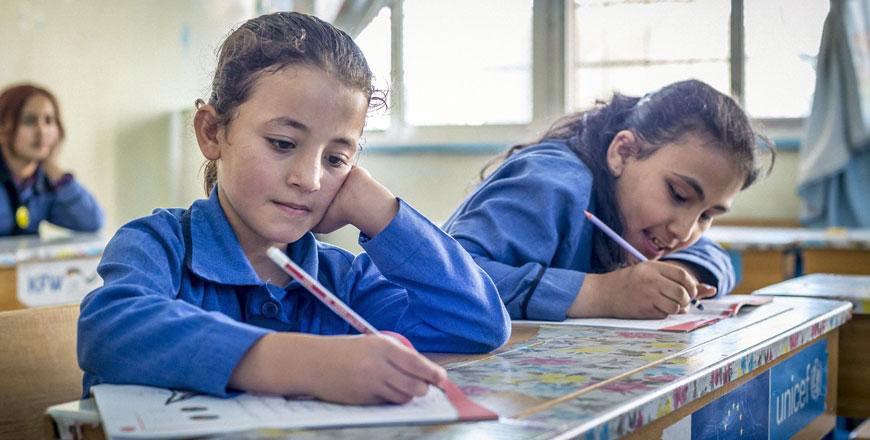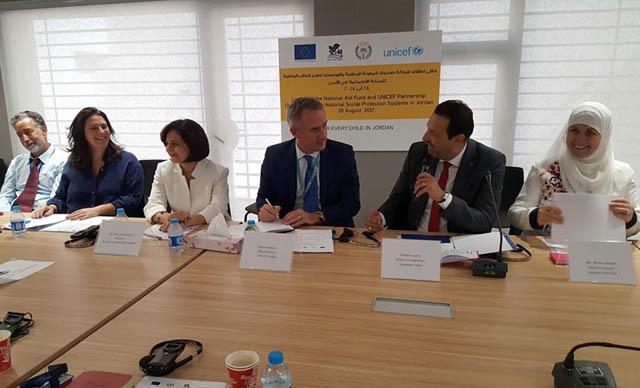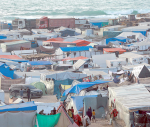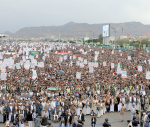You are here
UNICEF launches study on living conditions of Syrian refugees in Jordan
By Sara Arar - Feb 26,2018 - Last updated at Feb 26,2018
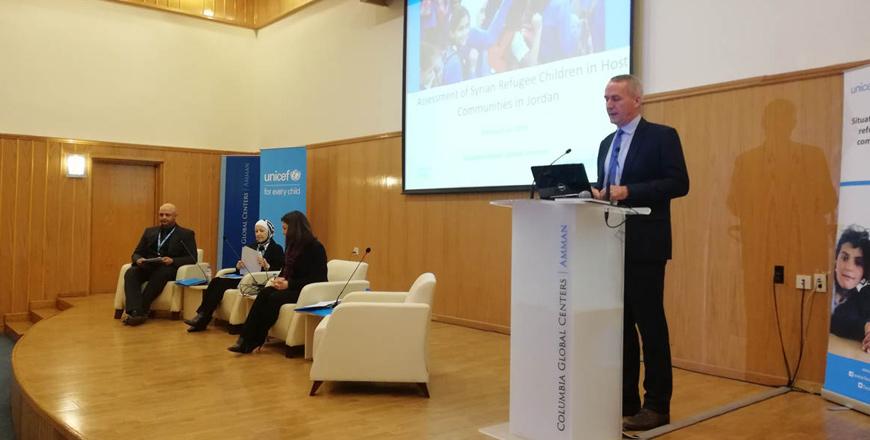
UNICEF Representative-Jordan Robert Jenkins outlines a study on Syrian refugee children in host communities in Jordan (Petra photo)
AMMAN — Eighty-five per cent of registered Syrian refugee children in Jordan are living below the poverty line, according to a UNICEF Jordan study on the living conditions of Syrian families in host communities over the past two years.
The study was launched by UNICEF Representative-Jordan Robert Jenkins and Chief of the Child Protection Programme at UNICEF Maha Homsi on Sunday, with the aim of determining the “types and extent of multidimensional deprivation” faced by Syrian refugee children in Jordan through a “frequent monitoring system” of a number of sectors implemented six times since April 2016.
The system covers family well-being, child development, health, education, protection and the use of water and sanitation services, as well as an understanding of the changing circumstances of Syrian refugee families with children in host communities in Jordan.
At the launch ceremony, Jenkins highlighted that “with the unparalleled massive scale of the Syria crisis and its prolonged nature, Jordan needs continued support in order to manage the impact of this crisis and meet the needs of vulnerable children”.
He added: “Seven years into this crisis, we need to collectively continue to do all that we can to support vulnerable refugee children and their families who are struggling to meet their basic needs.”
The study showed that 77 per cent of Syrian refugee families are following adverse methods to deal with their “monetary poverty” situation, which includes resorting to child labour and withdrawing children from school, moving to more vulnerable areas and regions to reduce rent cost and working in illegal or corrupt jobs.
According to the study, 16 per cent of Syrian refugee children between the ages of 0-5 do not have a registered birth certificate.
However, this percentage has decreased compared to previous years, the study showed, pointing to UNICEF and the government’s continuous efforts to raise awareness for Syrian refugee families on registering their children.
Syrian children are mainly deprived from health services, child protection, social cohesion and safety dimensions, according to the study, who added that children between the ages of 0-5 suffer the highest “multidimensional child poverty” percentage (94 per cent), while children between 15 and 17 years old stand at 64 per cent and 6-14 year olds reach 60 per cent.
According to a UNICEF statement, the organisation in Jordan is currently affected by a funding shortfall of $145.7 million required to meet the needs of vulnerable communities in the Kingdom in 2018.
Related Articles
AMMAN — EU parliamentary members who were on a visit to the Kingdom on Wednesday said they would return to their countries with a message to
AMMAN — UNICEF has said that its cash assistance programme “Hajati” has proven to be effective at keeping the most vulnerable children in Jo
AMMAN — A new partnership aimed at strengthening the national social protection system for the most disadvantaged children in the Kingdom wa


